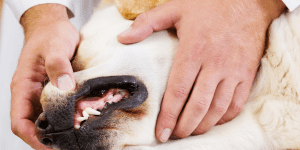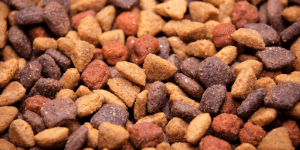Why Is My Dog A Picky Eater?
Most dogs are incredibly enthusiastic about dinner times. However, there are a few who show little interest in food and tend to pick and push food around their bowl. Some dogs may have a temporary lapse in appetite due to perhaps a change in environment. or health issues. Others may have a long-term lack of interest in food. If you are wondering why your dog is a picky eater – read our Holidays4Dogs article.
Health.
If your dog, or puppy, has suddenly gone off his food, it may be possible that he is feeling unwell, or in pain. If your dog has other symptoms such as loose bowels, lethargy, vomiting, or trembling, you seek urgent veterinary attention.
Mouth problems can also cause a dog to be off his food, even though he may be hungry. Issues with teeth, or gums, will cause him to lose interest in his dinner. For a dog that was previously enthusiastic about eating, check his mouth and gums for signs of teeth problems, or gum disease. If you suspect this is causing your dog to be off his food – a trip to the vet is essential.
Occasionally, a change in routine or, a sudden change in diet itself, may be enough to cause your dog to temporarily show a reluctance to eat.
Behaviour
Sometimes, dogs can learn to be picky with their food. If a dog becomes accustomed to being fed titbits throughout the day, especially if they are more appealing than his usual food, this can encourage him to be finicky at meal times. Although it may be tempting to carry on feeding the dog treats, to compensate for his lack of interest in main meals, this can lead to obesity.
Often, it can become a battle of wills with a finicky eater and some owners will go to great lengths to encourage their dog to eat his dinner, from feeding him by hand to pretending to eat the dog’s dinner themselves! Unfortunately, both these approaches can cause the dog to continue his picky eating pattern. Put his food down and leave it for half an hour. If he won’t eat it, or only picks at it, take the food away and repeat the process a couple of hours later.
What’s on the menu?
Check that your dog’s food hasn’t been spoiled in any way and has been stored appropriately.  Many dogs, with their intense sense of smell, won’t eat food that they think is contaminated. Dried food, if not stored correctly, can go stale. Ideally, keep dried food in an air-tight container and out of direct light.
Many dogs, with their intense sense of smell, won’t eat food that they think is contaminated. Dried food, if not stored correctly, can go stale. Ideally, keep dried food in an air-tight container and out of direct light.
Always make sure your dog doesn’t eat human food that might make him ill. Some foods can cause serious health issues.
Avoid changing your dog’s diet suddenly, as this may cause tummy upsets – always gradually introduce a new brand, or type of food, over a few days.
Environment
Make sure your dog is provided with a ‘safe’ environment to eat his dinner. The reluctant eater may be being bullied by another dog in the household, for instance. On the other hand, if you always feed more than one dog separately, you may find feeding a picky eater in the company of another dog may encourage the reluctant one to eat. This may also work with another pet, such as a cat – but only as long as both animals normally get along.
Rescue dogs, recently re-homed, may have a temporary lapse in appetite. Stress is another factor that can discourage a dog from eating. Firework night, for instance, may be enough to put a normally happy eater off his food for the evening.
Conclusion
Always try to be patient with finicky eaters, but also look out for any signs of illness, or distress, which may have caused your dog to go off his food. Otherwise, patience and consistency with some of these Holidays4Dog tips will usually ensure the finicky eater is a thing of the past.
If you are concerned in any way about your dog’s eating habits or worried about his dietary health – always consult your veterinary surgeon for advice.
If your dog is the opposite and tends to bolt his, or her food, read our other Holidays4Dogs article on slow-feeders.


